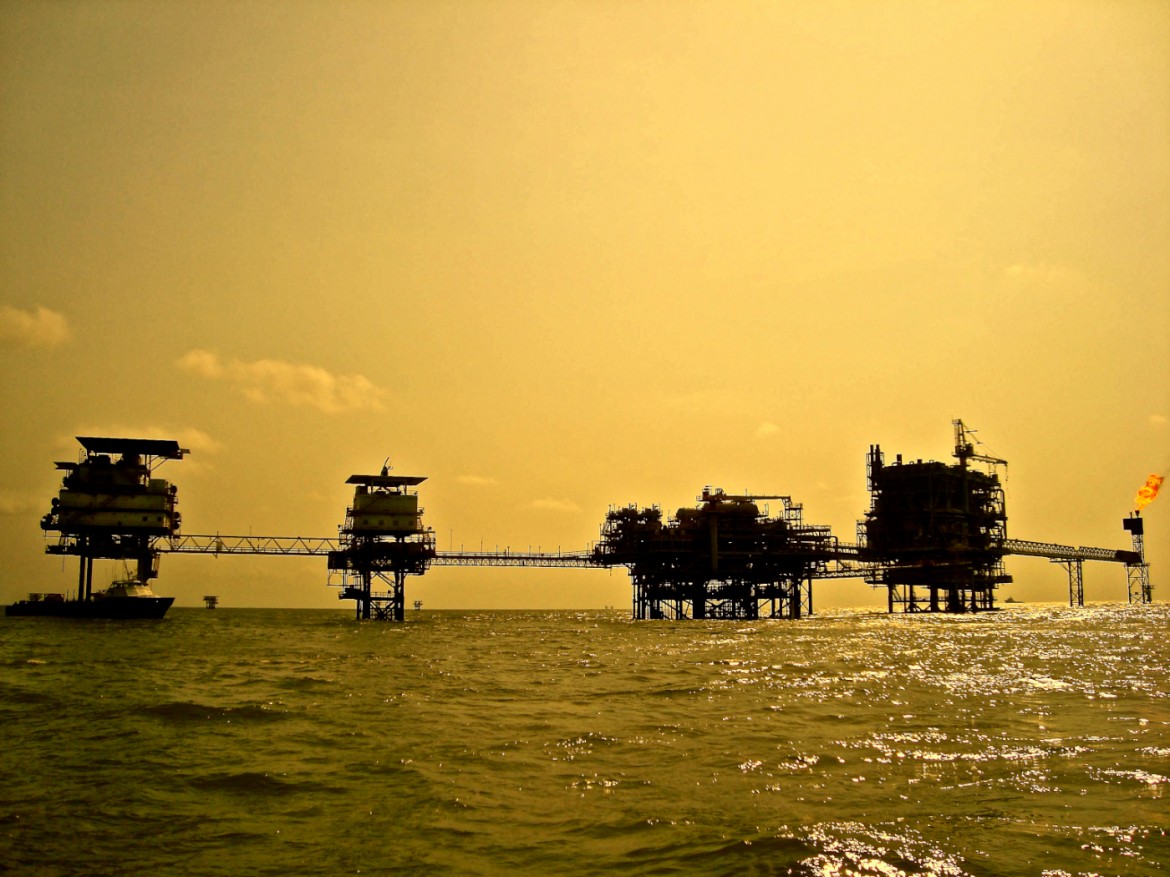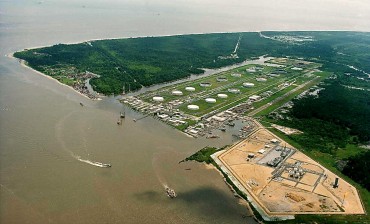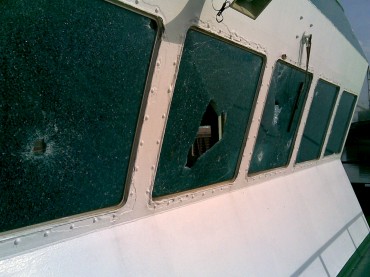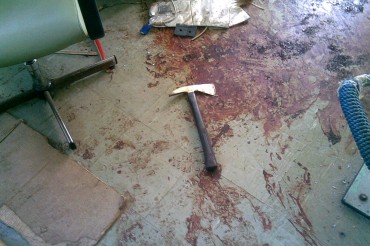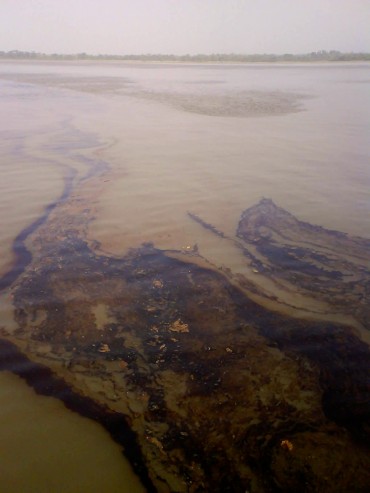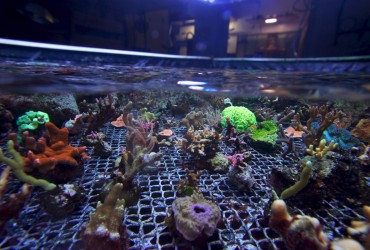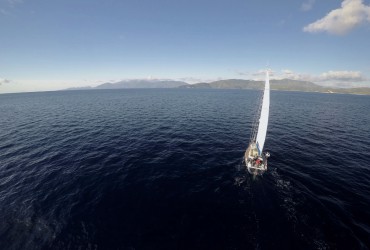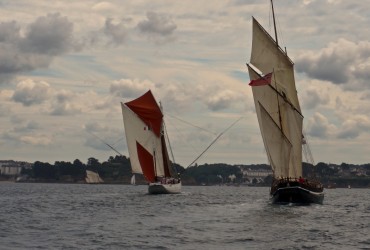A captain tells the truth about Nigeria’s hell
OCEAN 71 – You have worked for nearly six months for the oil industry in Nigeria. Can you describe your activities there?
Pierre* — I was a captain for Greenmar, a Swiss branch of Bourbon, at the Escravos base, east of Lagos. The company charters boats transporting equipment and workers to off-shore oil rigs. We are also in charge of monitoring them. We generally leave for 12-hour missions. We leave the base and go on a round of the rigs we are assigned. Our boats are 14 to 18 meters long. They have a top speed of 30 knots (a little under 60 km/h).
What does the surveillance consist in? The Movement for the Emancipation of the Niger Delta (MEND), which some consider as pirates, has claimed responsibility for numerous attacks on oil rigs…
P. — There are two things: the bombings on unmanned oil rigs and hostage takings on the boats. Our mission in most cases, is to keep all types of suspicious crafts –including fishermen and pirates’ speedboats– at a distance. It is not easy to sort them out as there are countless fishermen with powerful dugouts capable of reaching 30 knots.
As a Frenchman, did not you fear being kidnapped? What is the insecurity level for an expatriate?
P. — For Europeans, danger is everywhere in Nigeria. It is dangerous as soon as you set foot at the airport, even in Lagos. Somebody is waiting for you with a little sign reading Bourbon, Total, Shell… You don’t follow a person who cannot prove he is working for your company. To prevent risks, we are forbidden from leaving the airport. Once you have been picked up, you leave in a car with tinted windows which never stops. If you hit traffic congestions, the driver veers to the left handside lane… In Port-Harcourt, we were accomodated at a guest-house which we left only to follow security training and leave for Escravos. You cannot take a stroll in the streets. It is far too dangerous. The harbor at Escravos even has a floating barrier opening and closing every time a boat comes in and out. It is a entirely fenced area, with barbed wire and watchtowers… once inside you are safe.
What about security on your boat when you go on your round?
P. — On board, there is a life jacket, a bullet-proof vest and a helmet per person. Some boats are armored. The problem is that the soldiers who embark with us are poorly trained. The guys of Greenmar told me that if we were to come under attack, we should not take time to think. They told us: « Don’t play heroes. Full throttle and speed away! » To give you an idea, while I was there before last Christmas, one of the soldiers of a nearby boat has accidentally fired three times! Two rounds ended up in the hull. The third hit another soldier causing him to lose a hand. At sea the soldiers are scared. They awkwardly hoist each other on board. You have to be careful not to hit the waves too hard or else the soldiers get jumpy. The sea is really not their thing. I think they are really scared. They will not embark if they do not have their life jacket. At night, they stay inside. It’s quite funny.
And if a French national were to be abducted… What would happen?$
P. — During attacks, the locals are either wounded or killed. Westerners do not get killed in Nigeria. When a westerner is kidnapped, ransoms asked can reach 150,000 euros… That’s what I have heard there. Before Bourbon or the oil company used to pay. Now, as Greenmar is based in Switzerland to be able to register ships in Nigeria, Panama or other countries, French people working on the ships remain French nationals meaning France has to take care of French hostages.
How is it to navigate between oil rigs? Is it risky?
P. — It’s fairly quiet during day time. On the other hand, at night, boats go about with their lights out. There are no beacons either. In channels the beacons used to be powered by small photovoltaic panels. They were stolen in a few hours time. So, they are not being replaced.
Nigerians are so desperate?
P. — One cannot imagine the poverty people live in there. Last October, a brand new 30-meter catamaran got stranded on a breakwater at the mouth of the river. After two days, the fuel tanks had been siphoned and all seats removed. Everything that could be dismantled was gone overnight… Now, the boat is gone! Salaries are very low for the locals. It would take a month for Nigerians working with me to make what I made in one day. Imagine the income of those working on land in other sectors than the oil industry.
Nigerians do not benefit from the oil riches of their country?
P. — Paradoxically, it’s true. The only way some have found to make money from the oil industry is to steal and resell diesel fuel. When we fill the tanks of a boat, one of the guys on board siphons the tank and fills containers. A few minutes later a boat shows up and takes the containers. Everybody gets his cut. Some manage to pilfer up to 500 liters every time! And everybody without a single exception is in this, since Chevron pays for the fuel… It is possible to refuse but refusing will create tensions with the sailors and soldiers present on board.
The explosion of an oil rig in the Gulf of Mexico has created unprecedented environmental scandal… What is the situation in Nigeria?
P. — (Laughs) In terms of environment, we are far, very far from our European concerns. I navigate waters you would not imagine… From time to time, some areas are covered in two inches of good, thick, crude oil… In France it would be an oil spill. In Nigeria, it’s nothing out of the ordinary! Even worse. One must know that the fuel used by all ships is of very poor quality. It is yet another local paradox. If you don’t let your fuel settle before starting, your engines will fail systematically. In European ports, you have « black boxes » where to dump dirty oil. When I took a container to collect used oil, they asked me what I was doing. And what was I to do with it afterwards anyway…? So you pour your dirty oil in the hold of the boat and once you have left port, you dump everything at sea. I used to work on small crafts but it is the same for other types of ships present in the area. A lot of ships take opportunity of their presence in the area to discharge their ballast water! The river pushes everything to the high sea. Of course there are no surveillance planes to spot the spills. Nigeria is really a different planet.
